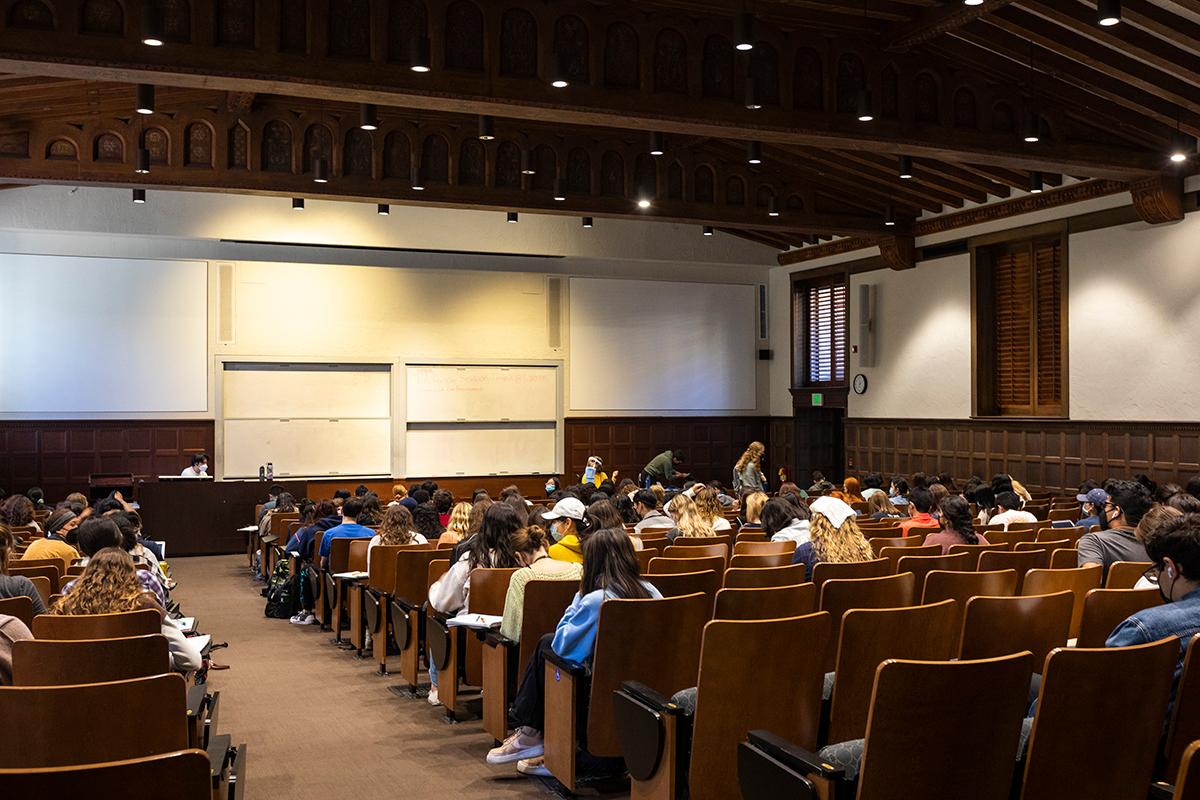California partners with hardware firm for AI education in community colleges
A classroom is pictured. Gov. Gavin Newsom recently announced a partnership between California community colleges and NVIDIA, an artificial intelligence company. (Daily Bruin file photo)
By Abhishek Jagannathan
Dec. 3, 2024 6:12 p.m.
California is collaborating with an artificial intelligence company to further integrate AI into the lives of community college students, educators and workers.
Gov. Gavin Newsom and NVIDIA CEO Jensen Huang signed an initiative this August to form a partnership between the California government and NVIDIA, an AI hardware supplier. The initiative’s goals include bringing new AI tools and resources into community colleges and using these resources to help students and staff, according to the governor’s website.
The initiative involves training faculty and improving AI literacy for all students, said Don Daves-Rougeaux, senior advisor on workforce development and strategic partnerships to the California Community Colleges chancellor.
Daves-Rougeaux added that the California Community Colleges system has partnered with K-12 schools to implement AI literacy courses. He added that the program also intends to focus on adult learners who may transfer to UC schools or enter the workforce.
“This partnership with NVIDIA and the governor’s office really allows us to tap into those two communities, build those pathways into the community colleges and then set them up for success,” he said.
This initiative will impact transfer students entering UCLA after community college, Daves-Rougeaux said.
“It’s going to set up transfer students to be more prepared to come into UCLA with those tools,” he said. “There’s a variety of ways that students can take that and have an impact upon their larger student community.”
Beyond that, the integration of AI tools and resources promised to community colleges will also be implemented at UC schools in the future, according to the governor’s website.
“California’s collaboration with NVIDIA is a forward-thinking initiative that underscores the state’s commitment to building a skilled, AI-literate workforce,” said UCLA Associate Vice Chancellor and Chief Information Officer Lucy Avetisyan in an emailed statement. “Such collaborations are essential to bridging the gap between academia and industry, preparing students for high-demand fields.”
Avetisyan added in the statement that she believes AI will eventually play an important role at UCLA. The university will likely see an expansion of learning tools for students and enhanced data management for monitoring student performance, she said.
[Related: UCLA to become first California university to offer ChatGPT Enterprise accounts]
Students are expected to save hours with the new AI-driven efficiency, Daves-Rougeaux said.
Matthew Workman, a computer science graduate student, said he supports the initiative’s forward-thinking aspects.
“It’s good,” he said. “The idea is that we’re trying to keep our curriculum modernized.”
Workman also said he believes a partnership with NVIDIA would improve the capacities of existing UCLA labs.
“I imagine the collaboration will increase the amount of resources the existing labs have as well,” he said. “I know there are some that are like, ‘We are basically at capacity because all of our projects are using up the amount of resources we have available.’”
Khush Parikh, a second-year linguistics and computer science student, said that he believes the initiative’s practical – rather than theoretical – application of AI is most helpful.
“A lot of AI knowledge and learning right now, especially at UCLA, is very theoretical,” Parikh said. “I think that the practical applications of these technologies is probably going to be what 99% of people use in their everyday lives.”
Ultimately, the goal of this initiative is to level the playing field for students who come from marginalized backgrounds by making AI tools more accessible, Daves-Rougeaux said.
“It’s about the democratization of AI and the inclusion of traditionally marginalized and minoritized communities into this space in a way that we’ve never really seen before,” he said.
